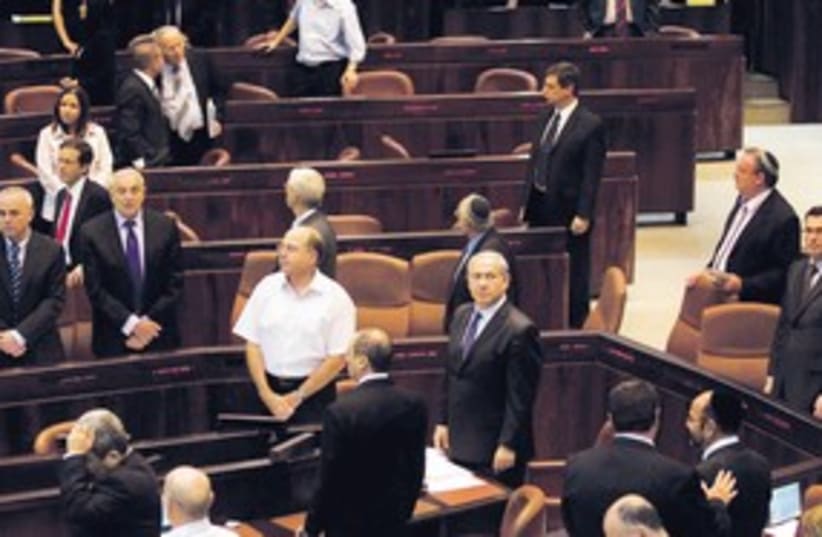RELATED:Opinion: Israeli fears of BDS are exaggerated – for the momentEarlier in the day, a coalition of 53 human rights organizations, including B’Tselem, the Association for Civil Rights in Israel, Physicians for Human Rights and Rabbis for Human Rights, sent a letter to Knesset Speaker Reuven Rivlin, asking him to stop the legislation, which was sponsored by Coalition Chairman Ze’ev Elkin (Likud).Left-wing MKs argue that the definition of boycott is too vague and thus could limit citizens’ freedom of expression, while the bill’s sponsors emphasized that such legislation already exists in the United States, punishing companies that support boycotts of Israel. MK Otniel Schneller (Kadima) retained support for the bill, arguing that MKs who were truly interested in establishing a Palestinian state would work to further diplomatic channels, rather than concentrating on boycotts.The bill initially met with stiff opposition from the Justice, Foreign Affairs and Industry, Trade and Labor ministries for being likely to harm Israeli interests abroad. But last week, the bill’s sponsors agreed to a revised version that defines boycott as “an intentional avoidance of economic, cultural or academic relations with a person or another agent, solely because of their ties to the State of Israel, its institutions or areas under its control.”The bill will now be returned to the Knesset’s Law and Constitution Committee, where it will be prepared for its second and third readings in committee, and then sent to the plenum floor. Coalition MKs are confident that they will be able to maintain support for the bill throughout its legislative process.
Anti-Boycott bill passes first reading in Knesset
Proposed legislation would place sanctions on bodies that advocate boycotting Israel; rights groups say bill limits freedom of expression.

RELATED:Opinion: Israeli fears of BDS are exaggerated – for the momentEarlier in the day, a coalition of 53 human rights organizations, including B’Tselem, the Association for Civil Rights in Israel, Physicians for Human Rights and Rabbis for Human Rights, sent a letter to Knesset Speaker Reuven Rivlin, asking him to stop the legislation, which was sponsored by Coalition Chairman Ze’ev Elkin (Likud).Left-wing MKs argue that the definition of boycott is too vague and thus could limit citizens’ freedom of expression, while the bill’s sponsors emphasized that such legislation already exists in the United States, punishing companies that support boycotts of Israel. MK Otniel Schneller (Kadima) retained support for the bill, arguing that MKs who were truly interested in establishing a Palestinian state would work to further diplomatic channels, rather than concentrating on boycotts.The bill initially met with stiff opposition from the Justice, Foreign Affairs and Industry, Trade and Labor ministries for being likely to harm Israeli interests abroad. But last week, the bill’s sponsors agreed to a revised version that defines boycott as “an intentional avoidance of economic, cultural or academic relations with a person or another agent, solely because of their ties to the State of Israel, its institutions or areas under its control.”The bill will now be returned to the Knesset’s Law and Constitution Committee, where it will be prepared for its second and third readings in committee, and then sent to the plenum floor. Coalition MKs are confident that they will be able to maintain support for the bill throughout its legislative process.